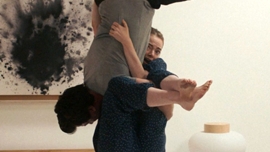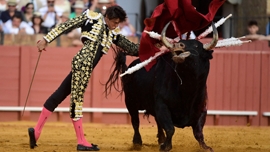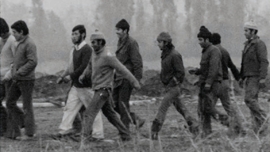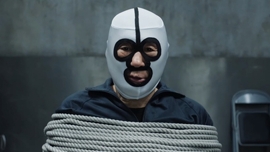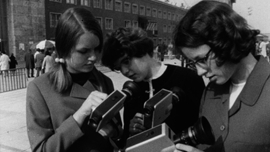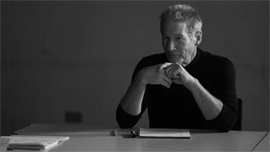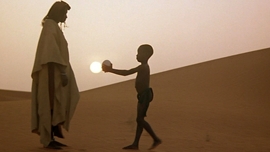James Lattimer
A Question of How
Albert Serra’s characters need no introduction and it’s just as well, for there’s no pinning down such vast figures as Quijote, Dracula, or the Three Wise Men anyway. Serra simply presupposes knowledge of their stories and their prior manifestations, freeing him up to focus on the matter at hand: to explore what it might feel like to be in their company, encounter them face to face, watch them move through space, see their reputations give off sparks. His are stories of experience and sensation, histories of the body and gentle, arch revisionism. The title of La mort de Louis XIV already takes the strategy of prior assumption one step further: we aren’t just acquainted with our protagonist, we also know what will happen to him. Like in all of Serra’s films, it’s not a question of what, but rather of how.
In the film’s first shot, it’s still just about bright enough for the garden flowers to glisten, although the evening mist is already beginning to envelop the landscape. The last rays are gone by the time the king appears in the next shot and they don’t return, this won’t be a film about blazing sunshine, but rather the stubborn residue it leaves behind. The monarch takes to his bed and never properly leaves it again, the kingdom beyond his chambers just a blur through paneled glass, a secondhand report of collective joy. The candlelight and the tight framings often make it hard to tell night from day and the gap between each cut could be an hour, a second, or a month. Different ways of marking time now come to the fore: the tautness and texture of flesh, the length of the pause before the response, the progress of a stubborn black stain up and over a leg.
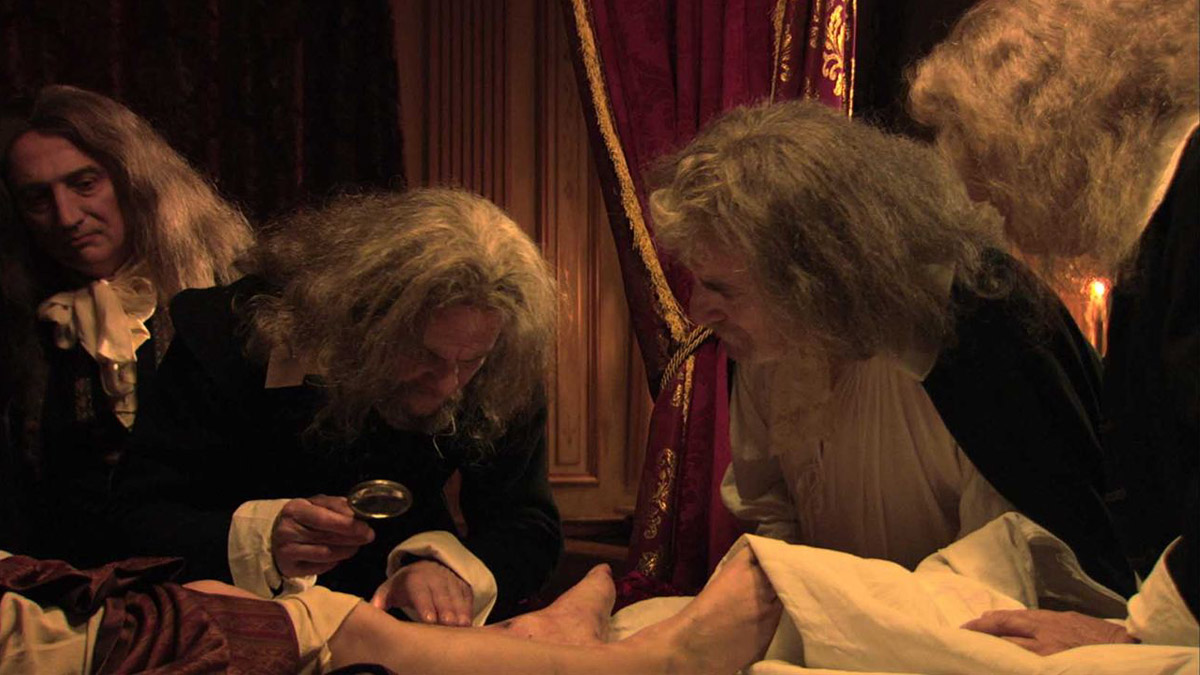
On one level, nothing has changed, the king remains at the center of things, his courtiers and servants still circle around him, his every whim catered for, his every modest gesture cheered. Yet as the sun fades and its pull weakens, it becomes clear that this meticulously constructed solar system was never built for change and all it knows is to keep on spinning. Watching the system revolve around an increasingly empty centre only throws its ridiculousness into sharper relief: a fawning story tips over into the excruciating when it no longer elicits the expected response, the intricacies of coastal defenses become wryly amusing when repeatedly ignored, and a nocturnal coughing fit can still only be brought under control by water from a crystal glass. The court’s inner circle can only vacillate between two strategies to deal with a decline we already know is unstoppable, both of which ultimately amount to the same thing. Whether clutching at straws to try and save the king or pretending he doesn’t need saving at all, there’s nothing more important than preserving the status quo, inconsistency or charlatanism be damned. Even when the end is nigh, his word is still everything, just as it always has been: he will decide whether to go to the chapel, he will decide when the rites are to be read, it was his decision to make sure that nothing could function without him.



